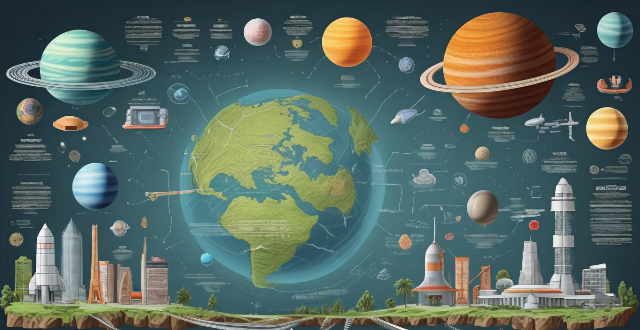Radiation exposure is a significant concern for astronauts during space travel and for future settlers on other planets. Shielding, distance, time management, and medication and supplementation are effective ways to protect against radiation. Lead, concrete, and water are good shielding materials. Distance from the source of radiation reduces exposure. Time management involves limiting the duration of exposure. Antioxidants, amifostine, and melatonin may help protect against radiation damage by reducing oxidative stress and promoting DNA repair.

Protecting Ourselves from Radiation Exposure in Space and on Other Planets
Radiation exposure is a significant concern for astronauts during space travel and for future settlers on other planets. Here are some ways to protect ourselves from radiation:
Shielding
Shielding is the most effective way to protect against radiation. The shield can be made of materials that absorb or deflect radiation, such as lead, concrete, or water.
- Lead: Lead is a dense material that can effectively block gamma rays and X-rays. However, it is not suitable for long-term use due to its toxicity.
- Concrete: Concrete is a common building material that can provide good shielding against gamma rays and neutrons. It is also non-toxic and can be used for long-term habitation.
- Water: Water is an excellent shielding material because it can absorb both gamma rays and neutrons. A layer of water around a spacecraft or habitat can provide effective protection against radiation.
Distance
The farther away you are from the source of radiation, the less exposure you will receive. This principle applies to both space travel and living on other planets.
- Space Travel: During space travel, astronauts can minimize their exposure to radiation by staying inside the spacecraft, which provides some shielding. They can also choose routes that avoid areas with high levels of radiation, such as the Van Allen radiation belts.
- Living on Other Planets: On other planets, settlers can build their habitats underground or behind natural barriers like mountains or craters to reduce their exposure to radiation. They can also design their habitats with thick walls made of shielding materials.
Time
The amount of time you spend exposed to radiation also affects your overall exposure. Reducing the duration of exposure can help minimize the risk of radiation damage.
- Space Travel: Astronauts can limit their time outside the spacecraft during extravehicular activities (EVAs) to reduce their exposure to radiation. They can also plan their missions to minimize the duration of their stay in areas with high levels of radiation.
- Living on Other Planets: Settlers can rotate their work schedules to ensure that no one spends too much time outside their shielded habitats. They can also design their habitats with multiple layers of shielding to reduce the need for frequent maintenance and repairs.
Medications and Supplements
Some medications and supplements may help protect against radiation damage by reducing oxidative stress and promoting DNA repair.
- Antioxidants: Antioxidants like vitamins C and E can help neutralize free radicals produced by radiation exposure, reducing oxidative stress and cellular damage.
- Amifostine: Amifostine is a radioprotective drug that has been shown to reduce the side effects of radiation therapy in cancer patients. It may also be useful for protecting astronauts and settlers from radiation exposure.
- Melatonin: Melatonin is a hormone that regulates sleep and has been found to have radioprotective properties. It can help reduce oxidative stress and promote DNA repair after radiation exposure.
In conclusion, protecting ourselves from radiation exposure during space travel and living on other planets requires a combination of shielding, distance, time management, and possibly medication and supplementation. By implementing these strategies, we can reduce our risk of radiation damage and make space exploration and colonization safer and more feasible.